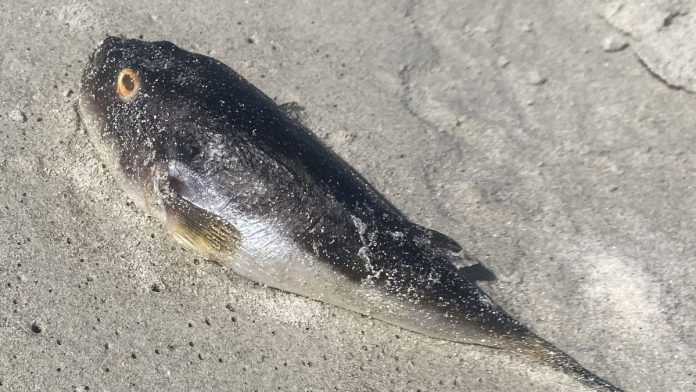The Food and Agriculture Organization of the United Nations or FAO in South Sudan and the Ministry of Livestock and Fisheries confirmed the presence of Epizootic Ulcerative Syndrome among fish in Northern Bahr el Ghazal.
FAO in a statement CRN got on Friday says the diagnosis comes after testing of samples at the Central Veterinary Diagnostic Laboratory in Juba.
FAO says it is working with Ministry of Livestock and Fisheries following Epizootic Ulcerative Syndrome outbreak among fish
The disease outbreak was first reported to FAO on 13 December 2021, and FAO responded by dispatching a fisheries expert to Aweil on 16 December 2021 to facilitate an investigation in collaboration.
FAO provided vehicles to support missions to the two locations of Nyamlel and Aroyo to take samples of diseased fish.
Samples were brought back to Juba on 23 December 2021 and subsequently tested positive for Epizootic Ulcerative Syndrome
A fungal disease associated with flooding is a seasonal water mould, an external parasite caused by fungus.
The infection is caused by oomycete fungi known as Aphanomyces invadans or A. piscicida.
Rivers swelled beyond their banks and submerged areas which are not normally covered by water and the waters carried pathogens back into the rivers, affecting the fish.
FAO applauds the governor of Northern Bahr Ghazal state for implementing a fishing ban as soon as the disease was identified, limiting its spread.
As the mould has 20 days lifespan, which has now elapsed, the Minister of Livestock and Fisheries, Onyoti Adigo Nyikwech has now ordered the fishing ban to be lifted.
Moving forward, it is essential to equip fishing experts across the country to quickly address any future disease outbreaks.
FAO is planning, in collaboration with the national and state governments, to conduct workshops for state fisheries officials to provide guidance on identification, reporting and response to fish disease outbreaks.
“FAO stands firm to support and facilitate the government in addressing issues pertaining to health and livelihood of the communities. Our team of fisheries experts will provide clarification on issues that needs attention” said Mary Lero, Assistant FAO Representative.
The agency advises fisher folk in Northern Bahr el Ghazal to continue monitoring the health of their catches and that it is not advisable to eat any fish with signs of this disease.
Fish with visible lesions should be burned or buried in a deep hole far from any water source and affected fish should not be returned to the water source.

